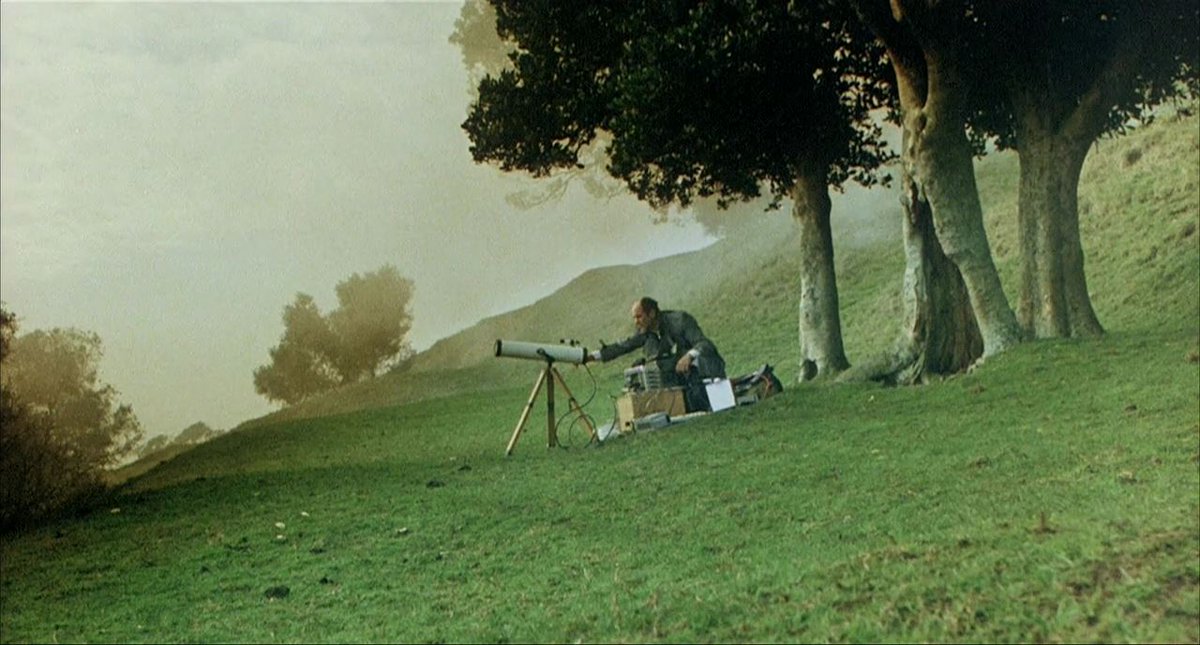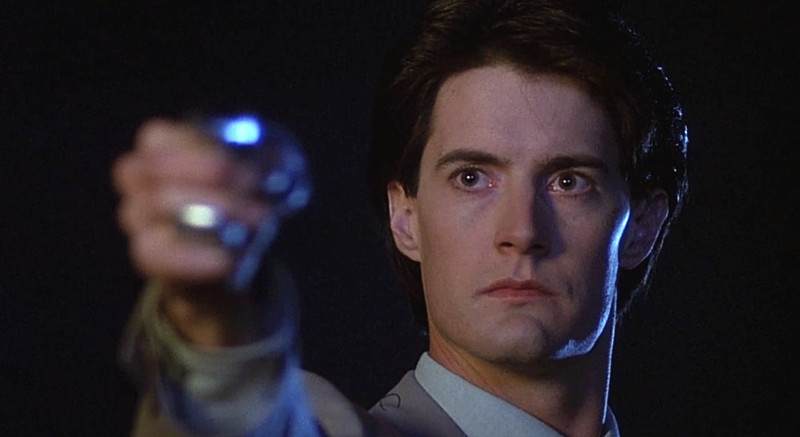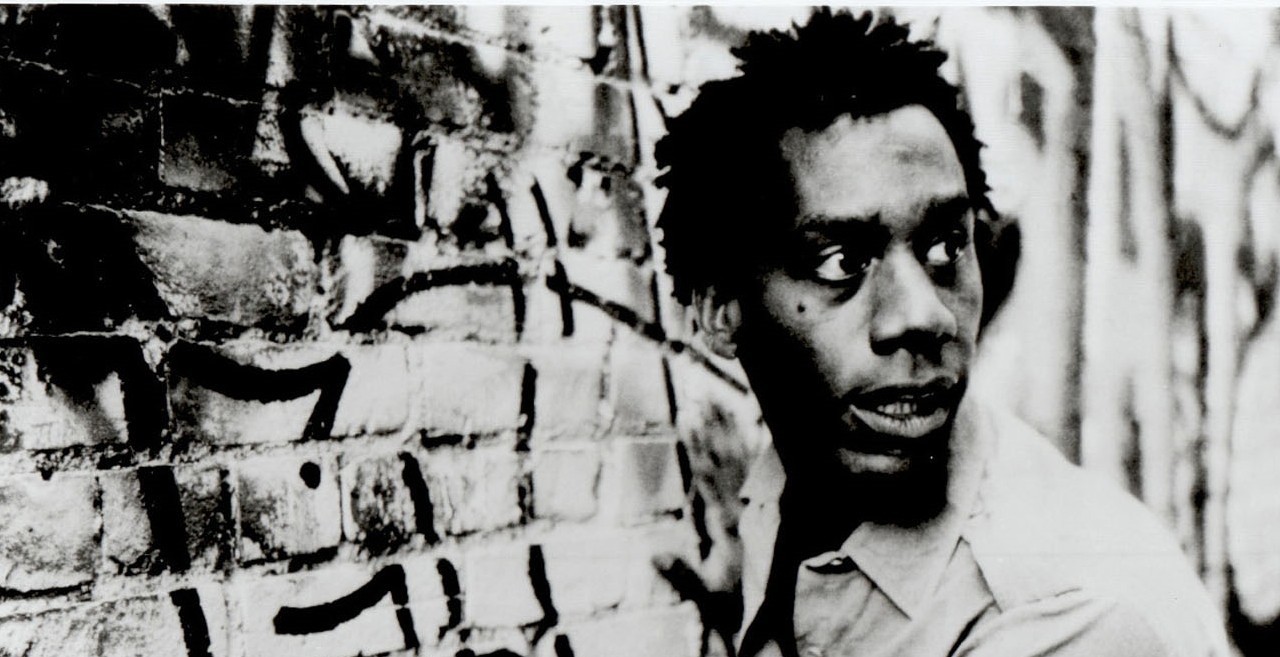5. The Quiet Earth (1985)

After “Death Watch,” we’re once again leaving America to see what other countries have contributed to the genre in this decade. This time our film is a post-apocalyptic sci-fi from New Zealand. Bruno Lawrence plays a man named Zac Hobson. In the film, he notes the following words on his tape recorder, which will give you an idea about the plot: “Zac Hobson, July 5th. One: there has been a malfunction in Project Flashlight with devastating results. Two: It seems I am the only person left on Earth.”
It’s not like there’s no other film with a similar plot. It automatically reminds me of “I Am Legend,” the much underrated “Z for Zachariah,” and, of course, “The World, the Flesh, and the Devil,” but this film manages to bring its own fresh perspective onto the subject. No wonder the genre keeps coming back to this subject because themes of isolation, guilt, and human need are so universal, and such settings always give a good chance to explore these themes.
It also makes us ask: What’s the point of the world if it’s devoid of life? Bruno Lawrence’s performance is a highlight, because for a film like this to work, you need an actor who can carry it all on his shoulders. His character’s journey is as much about inner discovery as it is about survival. We also see how it all effects his mental state, which turns the film into some kind of psychological drama as well. Neil deGrasse Tyson also took notice of it, saying, “I’d never before seen a main character who was so casually fluent in science and engineering” and putting it among his 10 favorite sci-fi movies. Then there’s an unusual, interesting ending that surely will make you keep thinking about it. The haunting cinematography is another highlight.
4. The Lathe of Heaven (1980)

There’s a constant debate going on about whether the streaming services kill the possible cultural impact of movies. Quentin Tarantino often argues that if it were not for Netflix, if the films were released in theaters, they’d have more attention, and it’d keep films relevant as “events”. Some other filmmakers agree with him. Here one wonders, can the same be said about television films as well? Because there had been countless great films premiered on TV but they didn’t get a bigger audience since then.
“The Lathe of Heaven” is another one of such cases. Based on Ursula K. Le Guin’s novel, it is a film adaptation that explores the power of dreams to reshape reality. The story follows George Orr (Bruce Davison), a man whose dreams can alter the world around him. When his psychiatrist, Dr. William Haber (Kevin Conway), discovers George’s abilities, he seeks to manipulate them for what he believes is the greater good, but as you can imagine, there will be harsh consequences of it. In 1998, “Entertainment Weekly” magazine named this one of the top 100 greatest works of science fiction as they should.
It’s an engrossing, compelling film that deals with many interesting themes such as free will, morality, the nature of reality, and how humans desire to control their destiny. The performances are all around good; the effects are modest but they’re used effectively well, and the low-budget aspect of the film only adds more to its charm. It shouldn’t be a problem because the film is for those who prefer sci-fis driven by ideas rather than effects. The film was later adapted into another tele-film by Philip Haas (who made the very underrated “The Music of Chance”) and had a very good cast including James Caan, Lisa Bonet, David Strathairn and Lukas Haas but unfortunately, it couldn’t live up to it. It’s better you watch this one instead.
3. The Hidden (1987)

No underrated sci-fi list is complete without this one probably. Not everything has aged here well but for a fast-paced, entertaining, action-packed film, one would think it’d be more known by now. Director Jack Sholder made a very fine debut called “Alone in the Dark”, a horror film and since then he kept making other films that are now called “genre films”; horrors, thrillers, action, and/or science-fictions. Most of them were not very good, to be honest even though things like “Renegades” have the charm of their decade. “The Hidden” is his best movie and just excellently directed with great use of practical effects and good enough action sequences that you don’t even feel it’s a relatively low-budget film. And there are lots of action! Those who like chases and shootouts will find a lot to appreciate in the film.
The film, in fact, starts with an action sequence; a robbery followed by a chase might make you think it’s just another cop movie that they didn’t get enough of making back then but soon you realize there’s something more to it. Tom Beck (Michael Nouri) is a cop and Lloyd Gallagher (Kyle MacLachlan) is an FBI agent, and together they want to catch a mysterious criminal: an extraterrestrial parasite that takes over human bodies.
It’s a fun film because it combines this unsettling sci-fi premise with action and even some humor. We also have a villain here that moves from host to host, which brings further unpredictability to the story. There’s even more interesting twist going on with MacLachlan’s character. Then again, it’s not just some dumb fun solely made for entertainment. One also can find some commentary here around the identity, which is another theme science-fiction films love to explore.
2. The Brother from Another Planet (1984)

John Sayles is one of the most “curious” filmmakers out there. Nowadays, talking about diversity in film is a trending topic and obviously important. However, some filmmakers cast people of different backgrounds just to fit the criteria, but Sayles had a genuine interest in other communities, sometimes in other countries, in people who’re different than him. He made films about people of color, films led by women, films made in other countries, and in all of them, he was interested in themes that makes us connected.
When you talk about Spike Lee films, you should also talk about John’s “City of Hope” which is powerful as much as his stuff. Whenever Sayles seemingly had more mainstream attention than he usually gets, he didn’t follow it with another similar film. He didn’t make many more of “Lone Star”s or “Passion Fish”s to stay recognized; he did he wanted to do. His “The Brother from Another Planet” is a poignant sci-fi film about an alien, a “brother”, who looks like an ordinary African-American man, distinguished only by the fact that he is mute. He cannot talk, but he can listen carefully and can read minds.
The film is full of witty, sometimes funny, clever, and charming moments. At first, it comes off like one of those “a man in a stranger land”, films that are metaphorically about immigrant experience or just being an outsider to the culture, but as you watch it, you realize it’s more than that. Like many of Sayles films, it’s a very socially conscious one. Joe Morton is a captivating lead, and he only gets to use his face and gestures to communicate a variety of emotions, which makes it a very interesting and impressive performance. The film sets in Harlem, which is obviously not coincidental, as the lead character’s experiences mirror those of marginalized groups throughout history. It’s a beautiful, involving, thought-provoking film that certainly deserved more attention.
1. Altered States (1980)

Not the most underrated film on the list, because it gained a certain cult following and is generally not that unknown anymore but certainly the most daring and bold film on the list, which is why it makes sense to put this on number one. Another reason is it’s always good to promote Ken Russell’s works, as he was one of the most unusual and courageous filmmakers of his time. Maybe these are not even the right words to describe him, but it’s hard to describe him anyway, which is probably why he was special.
It’s also the start of William Hurt’s incredible run in the 80s. He was always a reliable performer but when he died, it seemed like some people forgot how he did this one, “Kiss of the Spider Woman,” “Body Heat,” “Children of a Lesser God,” “The Big Chill,” and “Broadcast News” in such a short time span, giving extraordinary performances in all of them. “Altered States” is yet another terrific performance in his filmography where he plays a a scientist who experiments with sensory deprivation and hallucinogenic drugs to unlock different states of consciousness. His experiments take him to the brink of madness as he undergoes terrifying physical and psychological transformations.
One review of the films describes the major theme of it as “human drive to leave the body behind, to be born again, and to experience in the mind things that were once thought divine,” and it’s a good way to explain it because the movie is basically about the mystery of life. It is an original and intelligent film because for one thing, it has ambition. It tries to examine the nature of existence through a scientific, philosophical, and spiritual lens.
Despite its intellectual depth, it has an intense, surreal style that might not appeal to everyone. In fact, some might even find the whole thing silly; who knows? The atmosphere, especially the scenes of hallucations, can also feel unsettling and chaotic. For these reasons, it’s understandable why the film is still somewhat underrated, but if you’re open to thematically ambitious films that don’t shy away from complex philosophical ideas, it’s a good film to check.